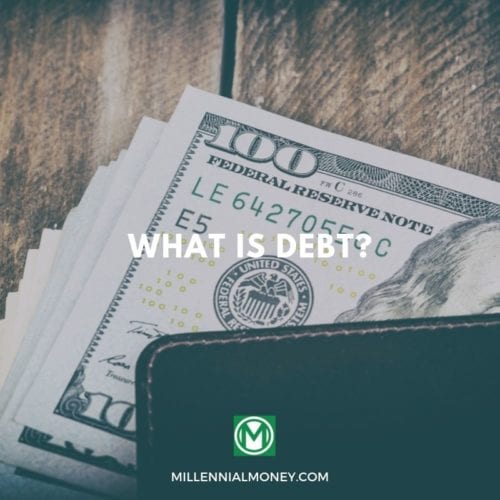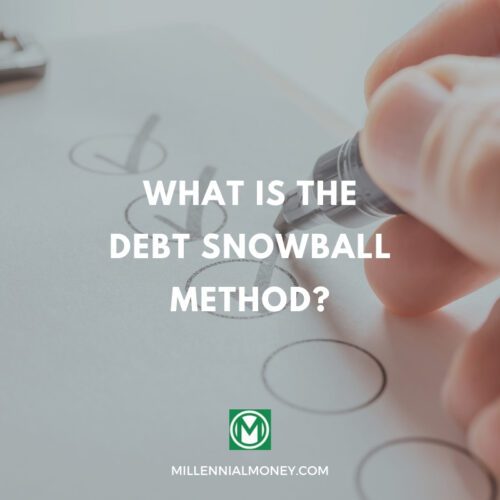The current lifestyle of our society is based on a financial structure where everybody is carrying a certain amount of debt.
Whether it be a mortgage, car loan or a credit card debt, almost all of us are worried about the due dates and payment deadlines related to these obligations.
Life can throw you a curveball any time and it is possible to lose control of your finances due to a calamity or an emergency.
An unexpected job loss or a short-term disability can cause you to fall behind on your payments. Medical bills can become a cause of your credit cards to be maxed out.
These financial setbacks may bring you to consider debt consolidation.
What Is Debt Consolidation?
 Debt Consolidation is combining multiple old debts into a single new loan with an ideally lower interest rate.
Debt Consolidation is combining multiple old debts into a single new loan with an ideally lower interest rate.
When you consolidate debt, you take a lump sum of money from a new loan to pay off all the old debts.
The purpose of debt consolidation is to pay off all the small loans and be left with only one loan payment.
How Does Debt Consolidation Work?
Debt consolidation can be a long and tiring process but it can be the only way out for many of us. It can save you from much bigger financial setbacks and can very well be termed as a light at the end of a tunnel.
Here are some effective ways to consolidate debt:
0% Balance Transfer Credit Cards
A 0% Balance Transfer Credit Card is the best option if you have good to excellent credit. The introductory interest rate for these cards is zero and it stays like that for a promotional period of time (usually 12 to 18 months). There is a balance transfer fee that comes with these cards.
In some cases, you can also expect an annual fee. Try to make best use of it within the “Promotional Period” and pay off your loans as quickly as possible.
Home Equity Loans / Lines of Credit
You are eligible for this option if you are a homeowner. This is a lump sum loan with a fixed interest rate that you can get on the equity in your home.
A line of credit, however, works like a credit card with a variable interest rate. These loans are available at a lower interest rate than an unsecured loan and you can get it even with average credit. The only downside is that if you miss the payments, you are at the risk of losing your home.
Personal Loans
A personal loan is an unsecured loan and it can be acquired from a local bank/credit union or even an online lender. Credit unions can offer you lower interest rates than online lenders. There are some upfront origination fees ranging between 1%-5% of your loan but there is no charge for an early pay-off.
Having excellent credit can help you get the lowest rates, but be sure that the interest rate and monthly payment is locked. The payment period is also fixed in these types of loans.
401(k) Loan
This is the riskiest of all and should be opted as a last resort. The interest rates are lower than an unsecured loan and it does not show up on your credit report. However, in case you can’t repay the penalty is substantial and it can leave you in a major financial crisis.
They are due in five years but if you lose or quit your job, you are supposed to pay them off in 60 days.
How Does Debt Consolidation Affect My Credit Score?
Taking control of your credit score is super important from early on. Wise financial habits can guarantee a thriving and wealthy future.
It is super important to understand credit scores. Many future difficulties can be avoided just by having a proper understanding of having a good credit score.
A Credit Score is based on 5 factors:
- 35% depends on your payment history
- 30% depends on the amounts that you owe
- 15% depends on the length of your credit history
- 10% depends on how diverse is your Credit file
- 10% depends on your recent credit inquiries
All these factors need to be taken care of if you want to keep your credit score in good standing. If you are taking care of these things from the get go, the chances of being in a tight financial situation is very slim.
A debt consolidation loan can have negative or positive affects on your credit score depending on how you are going to use it.
Positives of Debt Consolidation:
- It can help you to improve your credit score because by consolidating, you are making single monthly payment instead of several payments. It is easier to keep track of One payment with a fixed term and rate.
- You credit score has a better chance of getting a positive boost because you are not missing several payments and are not juggling between different due dates as everything is in one place (The Debt Consolidation Payment).
- The amount of late fees also goes down when you are paying off high-interest debts. With the balances going down on those debt amounts, your credit utilization also declines. It helps your credit to become better as there is a lower ratio of credit utilization on it.
- If you have any delinquent debts, you can pay them off with the help of Debt Consolidation. Getting rid of these late payments will also boost your credit score.
- Debt consolidation loan is a kind of personal loan and it can help diversify your credit file. It is beneficial for your credit score to have both revolving (credit card loan) and installment (personal loan).
Negatives of Debt Consolidation:
- Applying for a personal loan requires the creditor pull up your credit report. It is called a “hard pull”. It will result in a slight dip in your credit score.
- The supply of funds coming as a result of debt consolidation loan can become risky depending on the individual who is handling these funds. Lack of self-control will result in a dangerous and even more stressful financial situation if you rack up the debt on the freed credit cards again.
Learn more:
When Is Debt Consolidation A Good Idea?
There is no right or wrong answer to this question. It varies from person to person. Everyone is in a different financial situation.
However, there are some tips that can help you decide if debt consolidation is favorable for you.
- Make sure this new loan has lower rates than the original loan
- The loan with lower monthly payments can also work for some people
- A longer-term loan means a loan with lower payments while a shorter term means it would carry less interest
If you can get a deal on your consolidation loan where you have lower interest rates than your current debts/monthly payments, you should go for it but if it is the other way around it is better to stay away from it.
Here are some other factors that are favorable for debt consolidation. It will only work if,
- Your total debt (excluding mortgage) is not higher than 40% of your gross income
- You have a steady flow of cash that can cover the payment towards your debt
- You are eligible to qualify for a 0% credit card/low interest debt consolidation loan
- You are determined not to rack up your credit cards again
When Is Debt Consolidation A Bad Idea?
Is debt consolidation a bad idea? It could possibly be if you are facing any or all of the following:
- You cannot control your extensive spending habits that have caused this problem in first place
- You have no support system around you that can help you in getting through the process
- If you cannot stick with the budget
- If you are a victim of impulse buying
- It is hard/impossible for you to survive without using credit cards
If you are struggling with the above-mentioned issues, debt consolidation might not be a good option for you.
Is It Possible To Get A Debt Consolidation Loan With Poor Credit?
Credit can play an important role in applying for any kind of loan. Having bad credit will definitely create problems for you if you are thinking of applying for a debt consolidation loan.
You are most likely to get way higher interest rates even if the traditional lenders agree to lend you the money.
Weigh your options by spending some time researching which lenders can give you a best deal and how long you need to commit to them.
Make sure you compare different loans using their annual percentage rate and take the time to read the fine print. Make sure you can afford the monthly payments by keeping your budget in consideration.
All in all, it is not going to be easy to get a good deal on a debt consolidation loan if you have a bad credit but it should not stop you from trying. Just make sure you do not agree to any hard credit checks and are comfortable with the amount of monthly payment.
Is Debt Consolidation Right For You?
Hope this article has provided you with all the necessary information regarding debt consolidation.
You need to pick an option that is most suitable based on different aspects of your financial situation. Be mindful of your overall debt amount, credit history and score, monthly cash flow before you make a commitment.






Read 3 comments or add your own
Read Comments